As a writer and director with Yemenite-Libyan roots who immigrated to the US from Israel and grew up during the Second Intifada, filmmaker Eden Hadad finds catharsis in creating within the horror genre. Upon graduation from the Sam Spiegel Film School in Jerusalem, he co-wrote and directed the short film The Disposers, which was entirely funded through grants. The film is an intimate embodiment of Hadad’s own interpersonal struggles and revelations about friendship and follows two body disposers who work for a crime organization. It has premiered at over fifty festivals worldwide.
Following the success of The Disposers, Hadad went on to receive his MFA from Columbia University in New York and has since become the Volumetric Production Director at Yoom, a deep tech company founded in Israel that brings humans into the digital world with cutting-edge AI technology. We spoke with Eden Hadad about his love for the horror genre, his approach to storytelling, and the work he is doing at Yoom.
How did you get the idea for The Disposers? How did it come together?
Eden Hadad (EH): Funnily enough, although it’s a film about two body disposers who work for a crime organization, the story is actually inspired by the moment that I realized that my best friend and myself won’t always be best friends. I was in my 20s and I just learned that this guy who’s been almost part of my identity for more than 10 years won’t always be there. It’s like it hit the nail on the head for me. Friendships are not forever. So I took that painful revelation, and I combined it with my love for cinema.
It started with the first film I ever watched, Goodfellas, and mixed these worlds together. I wrote the first draft and brought on an amazing female writer as I felt that because it’s a bromance story, there should be a bromance in the writing process. I then applied for grants and was the first in my undergrad school to ever receive all grants. Having all this money was amazing as it was the first time I had a proper budget to accomplish my vision.
How did you initially become interested in working in the genre of horror and creating horror films?
EH: I grew up during the 2nd intifada in Israel, which means that as a kid, I’d see bodies on the news almost every night. I’d go on buses, or go to malls and restaurants, knowing that they could explode at any moment. Horror was part of my childhood, unfortunately. Being aware of death and violence at such a young age kind of messes you up, so I think that creating my art and stories in this space is therapeutic for me. It’s also why I always mix humor there. That balance keeps me sane. 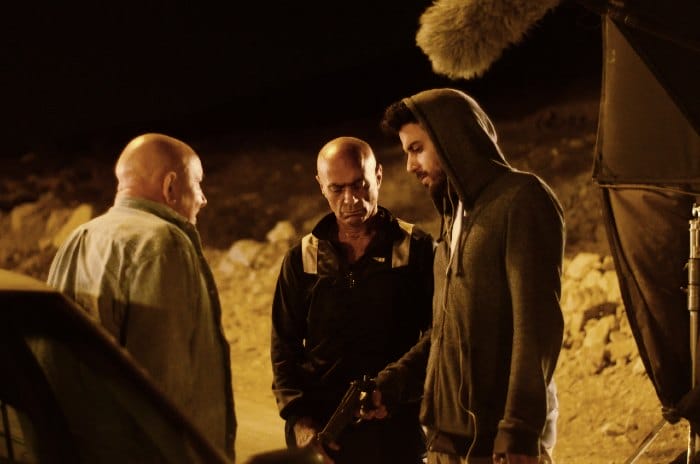
You chose to film The Disposers on a 35mm camera, what elements of the story influenced that stylistic choice?
EH: I love that you felt it was shot on film! It was actually shot on Alexa but in post and when designing its look with my DP, we talked about how it should feel warm just like a 35mm would feel. There are two reasons. First, I really wanted to communicate with the genre, and for me, the genre will always take me to 35mm. That is how and when it was invited in a way. It’s the original look of this kind of film. But also, because it was a story about two guys who aren’t aware that they’re actually each other’s best friends. I felt that the “feel” of the movie should be warm. Yeah, it’s got some blood, and some killings, and that suspense, humor, and the horror moments, but more than anything, I wanted it to be a warm movie, and the way we shot it really helped.
What elements do you think are necessary for both a story and production elements to create a horror film that captivates and intrigues an audience?
EH: Make a story that feels real and genuine. If the characters and the tale are not honest and based on real drama, it’s never going to play. To feel that suspense, or to have that jump scare, you need to be fully immersed in the film. Captivated as you said. That’s when I’m able, as the director, to move you in your seat when you’re fully inside the story.
Something really amazing that happened recently is that I started to work for a really cool company called Yoom. What we’re able to do is absolutely bonkers and the things we have in the pipeline really inspire me. Right now as their Production Director, I’m developing a cinematic immersive horror metaverse ride for audiences around the globe who have a smartphone. I’m literally tweaking the script now so it’ll be less scary! So if you have an honest story, and you execute it with the right production, then you should be good. Not that it’s a walk in the park accomplishing these two things. I already started by making skits, and then films, podcasts, and web series, and now, I’m really curious about this new frontier and the kind of work I can make in the Volumetric space. I’m curious and excited about this new chapter.
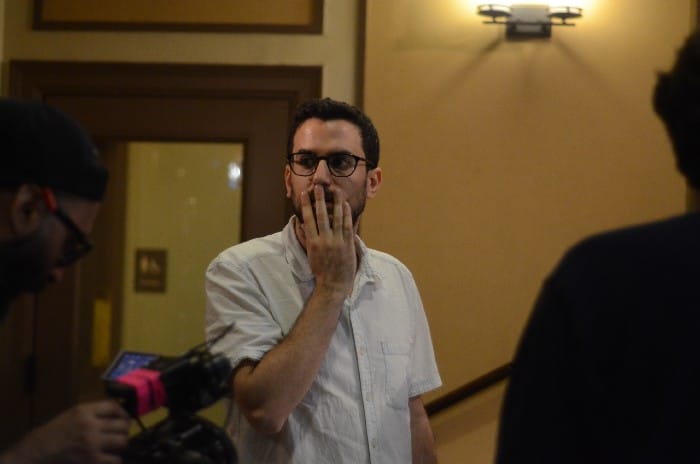
How do your Yemenite and Libyan roots influence your work as a filmmaker? Have these roots influenced your decision to make a horror film?
EH: The two sides of my heritage are different in many ways but one thing that they have in common is that all of my uncles and aunts, and cousins, from both sides of the family, are great hosts. As for me, I always loved to host. My friends will come over, eat my mom’s amazing food, and finish my dad’s favorite orange juice. That kind of stuff was my day-to-day as a teenager. In time, as my friends kept on coming, I figured out something- when my friends are at my house, they’ll feel welcomed, and at ease. So between the films I was watching, and I guess me being me, I started messing with my pals. Creating seconds in their experience that will shock them, or will make them immersed in an experience that “I’ve created.”
For example, one night a friend slept over. He was supposed to wake up at 9 am and he went to sleep around 5 am, a few minutes before the sun started to come out. He fell asleep watching a movie. But I stayed up until the sun started to shine. Then, I closed the curtains and changed the clocks on our phones, and the TVs – all to 8:58 am. Then I just laid there and waited. After a bit more than a minute. His alarm clock went RINGGGG. He gets up, utterly shocked, checking his phone. Then my phone. Then the TV, asking himself how it can be that he was so tired and it was already morning. Seeing his expression and absolute confusion was hilarious and joyful. Something that I always try to do in my work. Get a visceral reaction from your audience. Though, at that specific moment, I was my own audience.
Where can we follow you and what’s next for you?
EH: We’re doing some cool stuff now with the LA Kings, so you should see it throughout the season. There’s a bunch of cool stuff that I can’t talk about with one of my short films, and another thing that I’m leading now in Yoom, and there are a few more irons in the fire, but you’ll hear from me soon, and I’m always around if someone wants to reach out!
Those were some fun questions, Alix! Thanks for this!
One Comment
Comments are closed.

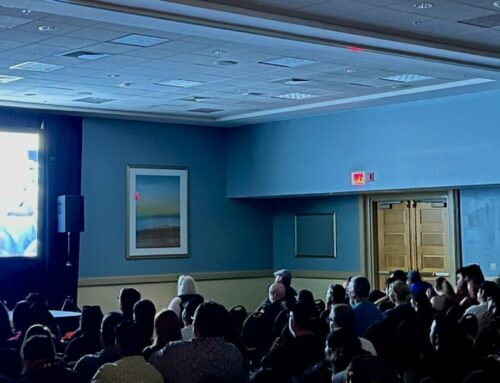
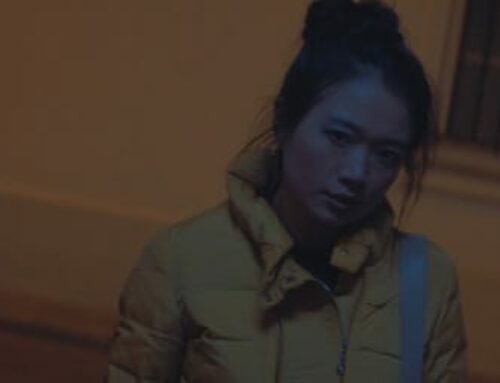
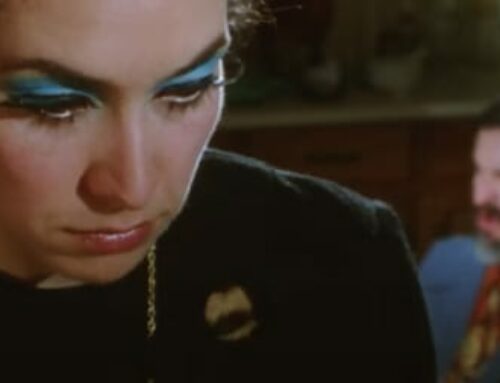
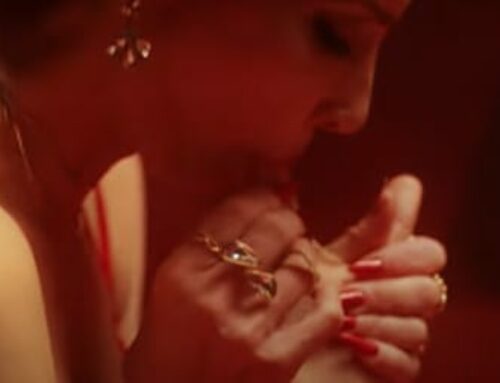
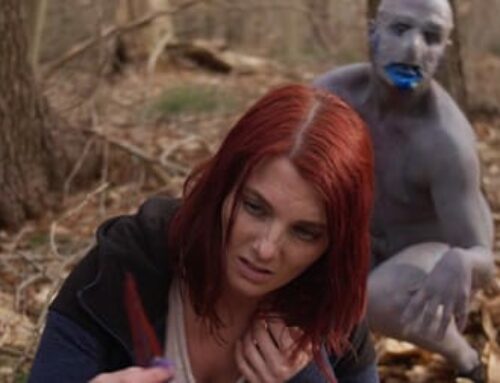
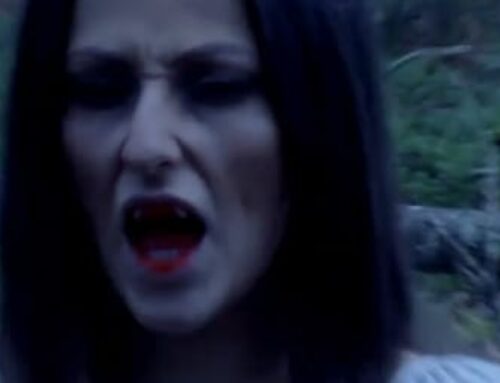

[…] Alix Kingray Source link […]